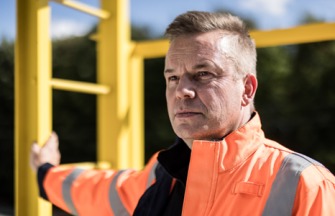In an interview for the Belgian publication L’Echo, Sébastien Dossogne, CEO of Carmeuse, offers an assessment of the challenges facing European industry, particularly as the continent seeks to balance ambitious climate policies with industrial competitiveness.
Sébastien Dossogne discusses the current state of Carmeuse’s business, noting sharp contrasts between regions. In Europe, the company faces declining demand from its main clients, the steel and construction sectors, mirroring a broader, structural contraction in European industry. Since 2019, steel production has dropped by 24%, and lime production has followed suit. Meanwhile, North America shows more resilience, supported by local protectionist policies, while Carmeuse’s strategic expansion into South America, Asia, and Africa diversifies business opportunities.
In addition to these efforts, Carmeuse has recently completed the acquisition of Cementos Bio Bio (CBB), a major Chilean cement and lime producer, for a sum exceeding half a billion dollars. This strategic move not only strengthens Carmeuse’s global footprint but also provides significant access to the South American market, particularly in sectors such as copper and lithium that are critical for electrification and battery manufacturing. The acquisition is seen as a geographic diversification, aligning with Carmeuse’s long-term strategy to expand in high-growth regions while continuing to address the structural issues facing European industry.
A central theme of the interview is the tension between Europe’s climate ambitions and the practical realities of industrial transformation. Sébastien Dossogne highlights Carmeuse’s progress in developing decarbonized lime production technologies, such as the internally developed Butterfly process, which aims to significantly reduce or capture CO₂ emissions. However, he warns that industry efforts alone are insufficient without parallel public investments in energy infrastructure, carbon capture, and storage solutions. He expresses concern that, despite industry readiness, a lack of supporting infrastructure and clear policy frameworks could render these climate gains ineffective.
We need to pay attention to the paradoxes within European policy: while the continent aspires to reindustrialize and achieve climate targets, slow and complex decision-making processes hinder the rapid action required. The CEO emphasizes the urgent need for affordable, decarbonized electricity and robust carbon sequestration strategies, warning that failure to align actions with ambitions could see Europe outpaced by international competitors, especially in sectors like lime where relocation is not an option due to the dependency on natural deposits.
He concludes that Europe faces a critical choice: either accelerating the pace of change or reconsidering the timeline of its climate and industrial goals. Without bolder, faster measures and a willingness to adapt decision-making processes to exceptional circumstances, he cautions, Europe risks missing its 2030 and 2040 targets and further eroding its industrial base.
This interview offers an insider perspective on the urgent crossroads Europe faces, underscoring the pressing need for coordinated action between industry and policymakers to ensure both economic and environmental sustainability.
Link to the original article: https://www.lecho.be/entreprises/industries-de-base/sebastien-dossogne-…

